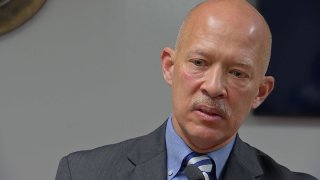
Hours after the Supreme Court overturned Roe v. Wade, the district attorneys in Dallas and Tarrant counties issued differing statements on how they plan to approach prosecuting any future violations of Texas law.
Outgoing Tarrant County DA Sharen Wilson issued a statement saying they don't choose which laws to follow and that they will follow state law.
"My oath and that of everyone in my office is to preserve, protect and defend the Constitution and the laws of the United States and Texas. Prosecutors do not make the law -- we follow it. We followed Roe v. Wade when it was the law and we will follow Texas state law now," Wilson said.
"Every case presented to the Tarrant County Criminal District Attorney's Office will be reviewed. If the facts warrant prosecution, then the case will be presented to a grand jury for consideration. As prosecutors, we always know that our primary duty under law is not to convict, but to see that justice is done, Art. 2.01, Texas Code of Criminal Procedure."
Get top local stories in DFW delivered to you every morning. >Sign up for NBC DFW's News Headlines newsletter.
In Dallas County, District Attorney John Crezot said his office would not get between a woman and her doctor.
“Today’s decision from the Supreme Court turns back the clock nearly 50 years on women’s rights. I want women across Texas, and especially here in Dallas County, to rest assured that my office will not stand in the way of them seeking the health care they need," Creuzot said in a statement. "Bans on abortion disproportionately impact the poor, women of color and other vulnerable populations, and endanger public safety – which goes against the very core of policies I was elected to put in place. As we do every day, my office will continue to use discretion to pursue justice on behalf of all citizens of our Dallas County community.”
Under the new Texas law, the Texas Human Life Protection Act of 2021 does not seek to punish women who seek abortions, rather it targets doctors. According to the law, doctors may face first-degree felony charges, which can include life in prison, fines of $100,000 and the loss of their professional licenses.

